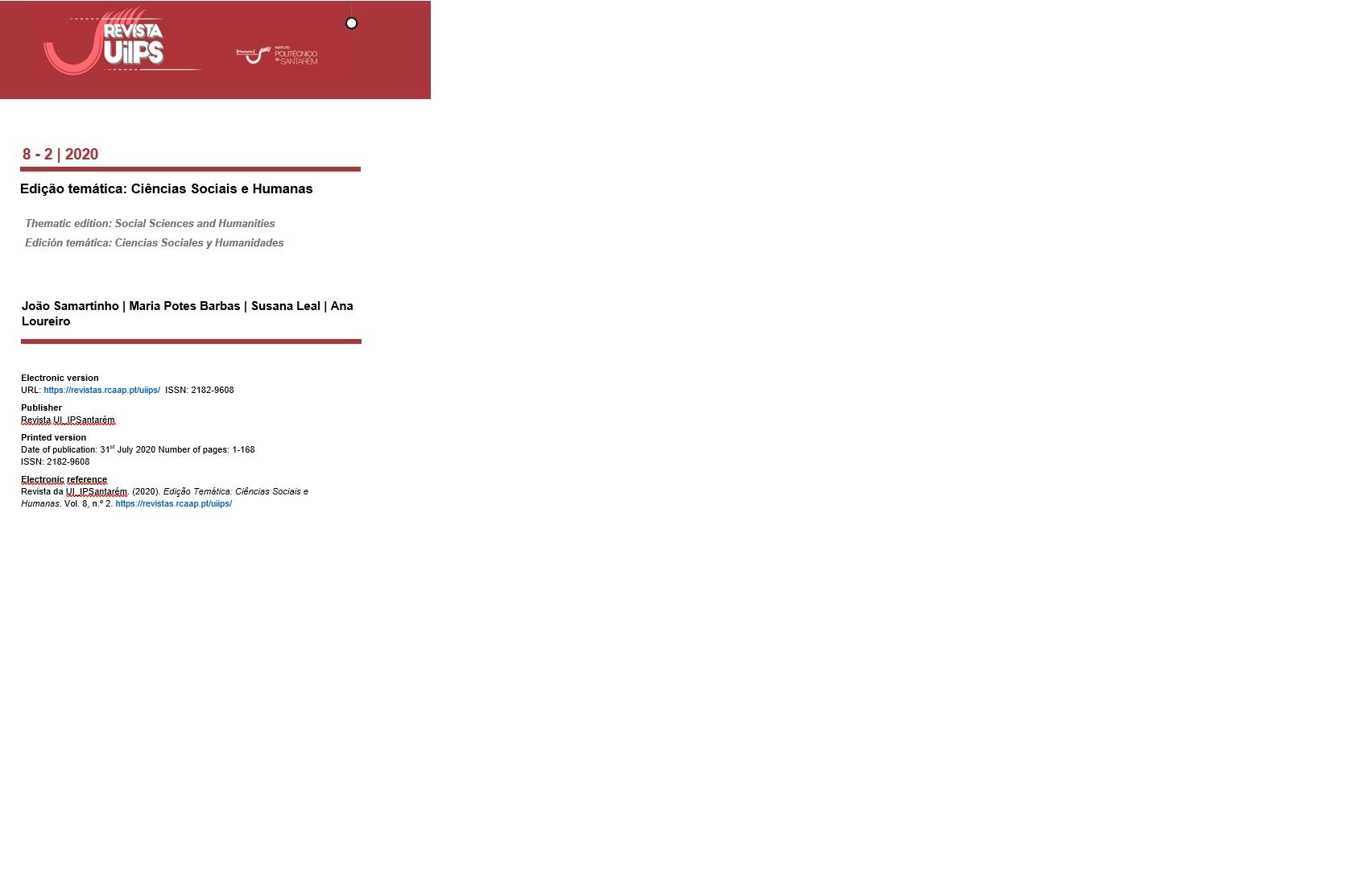Study on the dangers of the internet: the phenomenon of catfishing in the context of multimedia production in education
DOI:
https://doi.org/10.25746/ruiips.v8.i2.20665Keywords:
Catfishing, Dangers of the Internet, Social Media, Media Discourse Analysis, Catfishing, Dangers of the Internet, Social Media, Media Discourse AnalysisAbstract
Catfishing is a new phenomenon resulting from the strong growth from using internet and the consequent massification of social media. Five students of the bachelor’s degree in Multimedia Production in Education took two questionnaires, one on Catfishing and the other on the dangers of the Internet, within the framework of the Media Discourse Analysis Curricular Unit. The study was to meet the objectives of the Curricular Unit, such as understanding the impact of (multi)media on individuals and society; to know the different media discourses, in their forms of production and reception; collect, select and interpret the relevant information; produce an analytical discourse on the media and reflect critically on the media contemporaneity. It was concluded that it was possible to understand digital literacy in the use of the Internet and social networks with regard to the phenomenon of Catfishing, increasingly increasing in society.
Downloads
Published
How to Cite
Issue
Section
License
Authors publishing in this journal agree to the following terms:
Authors retain copyright and grant the journal the right of first publication, with the article simultaneously licensed under the Creative Commons Attribution License that allows sharing of the work with acknowledgement of authorship and initial publication in this journal.
Authors are permitted to enter into additional contracts separately for non-exclusive distribution of the version of the article published in this journal (e.g., publish in an institutional repository or as a book chapter), with acknowledgment of authorship and initial publication in this journal.
Authors have permission and are encouraged to publish and distribute their work online (e.g., in institutional repositories or on their personal webpage) at any point before or during the editorial process, as this may generate productive changes, as well as increase the impact and citation of the published work.



